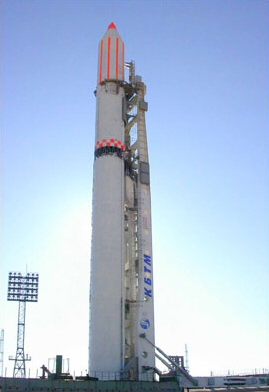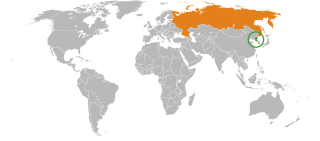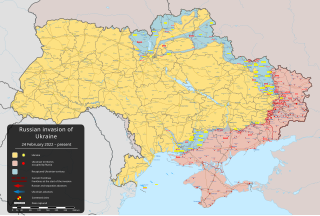Related Research Articles

World War III, also known as the Third World War, is a hypothetical future global conflict subsequent to World War I (1914–1918) and World War II (1939–1945). It is widely assumed that such a war would involve all the great powers, like its predecessors, in addition to the use of nuclear weapons or other weapons of mass destruction, thus surpassing all prior wars in geographic scope, devastation, and loss of life.

The MGM-140 Army Tactical Missile System is a supersonic tactical ballistic missile designed and manufactured by the US defense company Ling-Temco-Vought (LTV), and later Lockheed Martin through acquisitions.

The Storm Shadow is a Franco-British low-observable, long-range air-launched cruise missile developed since 1994 by Matra and British Aerospace, and now manufactured by MBDA. "Storm Shadow" is the weapon's British name; in France it is called SCALP-EG. The missile is based on the French-developed Apache anti-runway cruise missile, but differs in that it carries a unitary warhead instead of cluster munitions.

An intermediate-range ballistic missile (IRBM) is a ballistic missile with a range between 3,000 to 5,500 km, categorized between a medium-range ballistic missile (MRBM) and an intercontinental ballistic missile (ICBM). Classifying ballistic missiles by range is done mostly for convenience. In principle there is little difference between a high-performance IRBM and a low-performance ICBM, because decreasing payload mass can increase the range over the ICBM threshold. The range definition used here is used within the U.S. Missile Defense Agency.

The Taurus KEPD-350 is a German-Swedish air-launched cruise missile, manufactured by Taurus Systems and used by Germany, Spain, and South Korea. Taurus Systems GmbH is a partnership between MBDA Deutschland GmbH and Saab Bofors Dynamics.

The State Factory "Production Union Southern Machine-Building Plant named after O.M. Makarov", officially abbreviated as Pivdenmash and previously as Yuzhmash, is a Ukrainian state-owned aerospace manufacturer. Prior to 1991, it was a Soviet state-owned factory.

OTR-21 Tochka is a Soviet tactical ballistic missile. Its GRAU designation is 9K79. Its NATO reporting name is the SS-21 Scarab. One missile is transported per 9P129 vehicle and raised prior to launch. It uses an inertial guidance system.

The 9K720 Iskander is a Russian mobile short-range ballistic missile system. It has a range of 500 kilometres. It was intended to replace the OTR-21 Tochka in the Russian military by 2020.

The Soviet Union was the first to recognize North Korea on October 12, 1948, shortly after the proclamation, as the sole legitimate authority in all of Korea. The Soviet Union supported North Korea during the Korean War. North Korea was founded as part of the Communist bloc, and received major Soviet military and political support. The comprehensive personality cult around North Korea's ruling family was heavily influenced by Stalinism. China and the Soviet Union competed for influence in North Korea during the Sino-Soviet split in the 1960s, as North Korea tried to maintain good relations with both countries.
The RS-26 Rubezh, designated by NATO as SS-X-31, is a Russian solid-fueled intermediate-range ballistic missile (IRBM) with a nuclear warhead, of which the range bracket just barely classifies it as an intercontinental ballistic missile (ICBM). It is equipped with a thermonuclear MIRV or MaRV payload, and is also intended to be capable of carrying the Avangard hypersonic glide vehicle. The RS-26 is based on RS-24 Yars, and constitutes a shorter version of the RS-24 with one fewer stages. The development process of the RS-26 has been largely comparable to that of the RSD-10 Pioneer, a shortened derivative of the RT-21 Temp 2S. Deployment of the RS-26 is speculated to have a similar strategic impact as the RSD-10.
The Hwasong-11A is a North Korean single-stage, solid-fueled short-range ballistic missile.

On 24 February 2022, Russia invaded Ukraine in a major escalation of the Russo-Ukrainian War, which had started in 2014. The invasion, the largest and deadliest conflict in Europe since World War II, has caused hundreds of thousands of military casualties and tens of thousands of Ukrainian civilian casualties. As of 2025, Russian troops occupy about 20% of Ukraine. From a population of 41 million, about 8 million Ukrainians had been internally displaced and more than 8.2 million had fled the country by April 2023, creating Europe's largest refugee crisis since World War II.

During the southern Ukraine offensive of the Russian invasion of Ukraine, the city of Odesa and the surrounding region have been the target of shelling and air strikes by Russian forces on multiple occasions since the conflict began, fired in part by Russian warships situated offshore in the Black Sea. The city has also been targeted by Russian cruise missiles.

There have been attacks in mainland Russia as a result of the Russian invasion of Ukraine, which began on 24 February 2022. The main targets have been the military, the arms industry and the oil industry. Many of the attacks have been drone strikes, firebombing, and rail sabotage. The Ukrainian intelligence services have acknowledged carrying out some of these attacks. Others have been carried out by anti-war activists in Russia. There have also been cross-border shelling, missile strikes, and covert raids from Ukraine, mainly in Belgorod, Kursk, and Bryansk oblasts. Several times, Ukrainian-based paramilitaries launched incursions into Russia, captured border villages and battled the Russian military. These were carried out by units made up mainly of Russian emigrants. While Ukraine supported these ground incursions, it denied direct involvement.

During the Russian invasion of Ukraine, the Russian military have carried out deliberate attacks against civilian targets and indiscriminate attacks in densely-populated areas. The United Nations Human Rights Monitoring Mission in Ukraine says the Russian military exposed the civilian population to unnecessary and disproportionate harm by using cluster bombs and by firing other weapons with wide-area effects into civilian areas, such as missiles, heavy artillery shells and multiple launch rockets. As of 2024, the attacks had resulted in the UN-documented deaths of between 11,000 and estimated 40,000 dead civilians. On 22 April 2022, the UN reported that of the 2,343 civilian casualties it had been able to document, it could confirm 92.3% of these deaths were as a result of the actions of the Russian armed forces.
This timeline of the Russian invasion of Ukraine covers the period from 8 April 2022, when the area of heavy fighting shifted to the south and east of Ukraine, to 28 August 2022, the day before Ukraine announced the start of its Kherson counteroffensive.
This timeline of the Russian invasion of Ukraine covers the period from 29 August 2022, when Ukraine's Kherson counteroffensive started, to 11 November 2022 when Ukrainian troops retook Kherson. In between, Ukraine launched a successful counteroffensive in Kharkiv Oblast. Starting in October, Russia began a campaign of massive strikes against Ukrainian infrastructure.

Russia launched waves of missile and drone strikes against energy in Ukraine as part of its invasion. From 2022 the strikes targeted civilian areas beyond the battlefield, particularly critical power infrastructure, which is considered a war crime. By mid-2024 the country only had a third of pre-war electricity generating capacity, and some gas distribution and district heating had been hit.

On 15 November 2022, a missile struck Polish territory, in the village of Przewodów near the border with Ukraine, killing two people. The incident occurred during attacks on Ukrainian civilian infrastructure by Russia. It was the first incident of a foreign missile hitting NATO territory during the Russian invasion of Ukraine. Initially Ukraine accused Russia of striking Poland, while United States claimed that the missile was likely to have been an air defence missile fired by Ukrainian forces at an incoming Russian missile. This was later confirmed in September 2023 by the Polish Prosecutor's Office, which stated that the explosion was caused by an out of control air-defence S-300 missile.

During the Russian invasion of Ukraine, aerial warfare took place as early as the dawn of 24 February 2022, with Russian infantry and armored divisions entering into Eastern Ukraine with air support. Dozens of missile attacks were reported across Ukraine. The main infantry and tank attacks were launched in four spearhead incursions, creating a northern front launched towards Kyiv, a southern front originating in Crimea, a south-eastern front launched at the cities of Luhansk and Donbas, and an eastern front. Dozens of missile strikes across Ukraine also reached as far west as Lviv. Drones have also been a critical part of the invasion, particularly in regards to combined arms warfare. Drones have additionally been employed by Russia in striking Ukrainian critical infrastructure, and have been used by Ukraine to strike military infrastructure in Russian territory.
References
- ↑ Yoon, Dasl (2024-11-20). "North Korea Sent a Mystery Man to Lead Its Troops Fighting Ukraine". Wall Street Journal.
- ↑ Smith, Josh (2024-10-31). "Who are the North Korean generals Ukraine says are in Russia?". Reuters.
- ↑ https://www.themoscowtimes.com/2024/11/22/north-korean-general-wounded-in-ukrainian-missile-strike-on-kursk-region-wsj-a87098